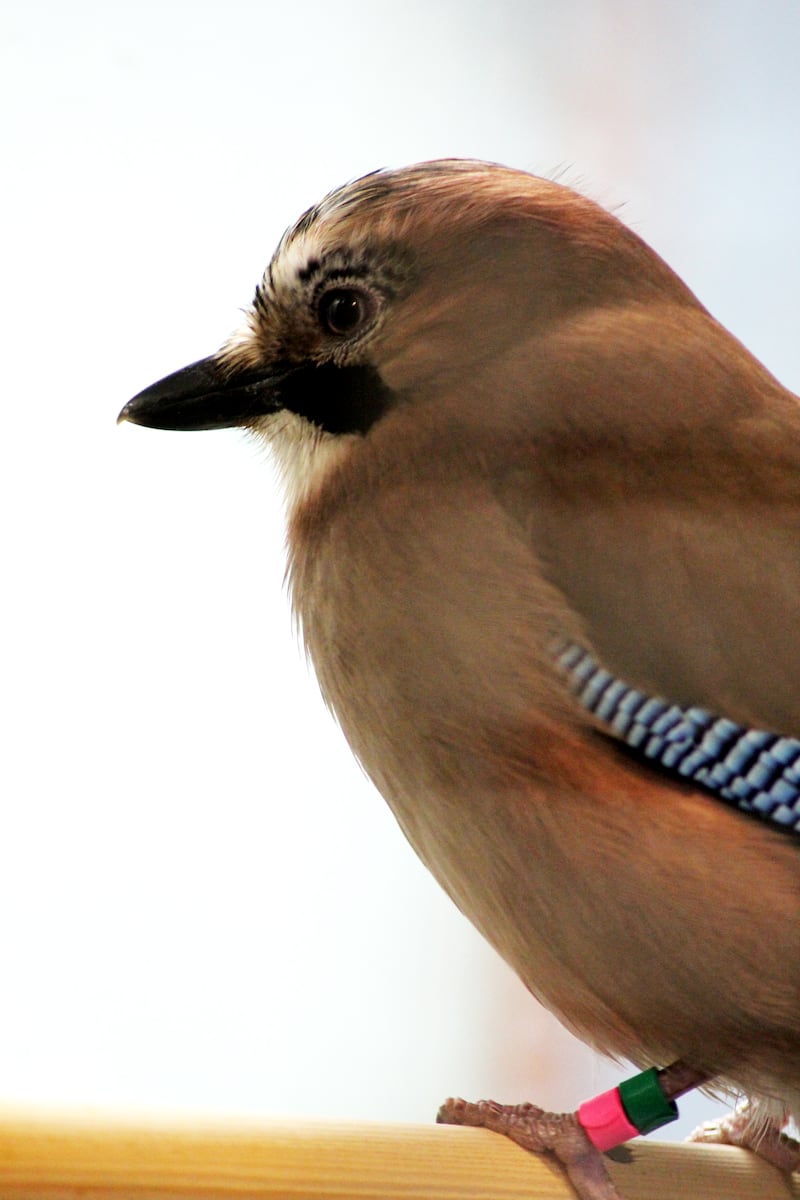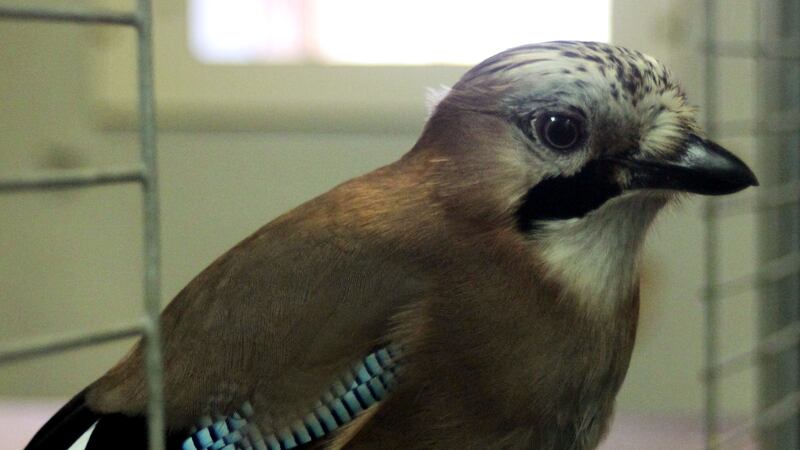Jays can resist temptation to get a delayed but better food reward, demonstrating self-control, according to a study.
Researchers from Cambridge University found that the birds which could wait the longest, showing the greatest self-control, also scored highest on intelligence tests.
The team designed an experiment inspired by the 1972 Stanford Marshmallow test – in which children were offered a choice between one marshmallow immediately, or two if they waited for a period of time.
Instead of marshmallows, 10 Eurasian jays were presented with mealworms, bread and cheese.
Mealworms are a common favourite of the birds, with bread and cheese coming second but individuals varying in their preference for one over the other.
The birds had to choose between immediately available bread or cheese, or their favourite mealworm which they could see but could only get to after a delay, when a Perspex screen was raised.
A range of delay times was tested, from five seconds to five-and-a-half minutes, before the mealworm was made available if the bird had resisted the temptation to eat the bread or cheese.
All the birds in the experiment managed to wait for the worm, but some could wait much longer than others.
Top of the class was JayLo, who ignored a piece of cheese and waited five-and-a-half minutes for a mealworm.
The worst performers, Dolci and Homer, could only wait a maximum of 20 seconds.
The report’s first author, Dr Alex Schnell, of Cambridge’s Department of Psychology, said: “It’s just mind-boggling that some jays can wait so long for their favourite food.
“In multiple trials, I sat there watching JayLo ignore a piece of cheese for over five minutes – I was getting bored, but she was just patiently waiting for the worm.”
The jays looked away from the bread or cheese when it was presented to them, as if to distract themselves from temptation.
Similar behaviour has been seen in chimpanzees and children.
The researchers also presented the jays with five cognitive tasks that are commonly used to measure general intelligence.
The birds that performed better in these tasks also managed to wait longer for the mealworm reward, suggesting that self-control is linked with intelligence in jays.
“The birds’ performance varied across individuals – some did really well in all the tasks and others were mediocre,” said Dr Schnell.
“What was most interesting was that if a bird was good at one of the tasks, it was good at all of them – which suggests that a general intelligence factor underlies their performance.”

The authors of the report said this is the first evidence of a link between self-control and intelligence in birds.
Jays are members of the corvid family, often nicknamed the “feathered apes” because they rival non-human primates in their cognitive abilities.
Corvids hide their food to save it for later, delaying immediate gratification to plan for future meals.
The researchers think this may have driven the evolution of self-control in these birds.
In another experiment where the worm was visible but always out of reach, the jays always ate the immediately available bread or cheese.
And the length of time they were willing to wait for the worm fell if it was pitted against their second most preferred food as the immediate treat, compared with their third.
This flexibility shows that jays only delay gratification when it is warranted.
Research by other scientists has indicated that children taking the Stanford marshmallow test vary greatly in their self-control, and this ability is linked to their general intelligence.
Children that can resist temptation for longer also get higher scores in a range of academic tasks.
– The results are published in the journal Philosophical Transactions of the Royal Society B.








